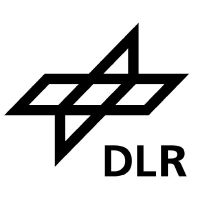Discover and explore top open-source AI tools and projects—updated daily.
minihack by  facebookresearch
facebookresearch
RL sandbox for open-ended reinforcement learning research
Top 61.6% on SourcePulse
MiniHack is a framework for designing diverse and complex reinforcement learning (RL) environments, built upon the NetHack game. It targets RL researchers and practitioners seeking to scale task complexity and test agent generalization in a controlled, customizable sandbox. The primary benefit is the ability to rapidly create novel environments using a human-readable domain-specific language.
How It Works
MiniHack leverages the NetHack Learning Environment (NLE) to interface with the NetHack game engine. Environments are defined using a probabilistic-programming-like domain-specific language (DSL) in description files, allowing fine-grained control over level generation, including terrain, monsters, traps, and objects. This DSL approach enables the creation of a vast array of Gymnasium-compatible environments with controlled complexity and stochasticity, facilitating systematic RL research.
Quick Start & Requirements
- Install via pip:
pip install minihack - For development:
git clone https://github.com/facebookresearch/minihack && cd minihack && pip install -e ".[dev]" && pre-commit install - Requires Python and Gymnasium.
- Official documentation: https://minihack.readthedocs.io/en/latest/
- Environment list:
python -m minihack.scripts.env_list
Highlighted Details
- Supports custom environment creation via a DSL.
- Integrates with TorchBeast and RLlib for baseline agent training.
- Includes a browser-based Level Editor for GUI-driven environment design.
- Offers a language wrapper for text-based observations and actions.
- Facilitates research in Unsupervised Environment Design.
Maintenance & Community
Maintained by Meta AI (FAIR), UCL DARK, and University of Oxford. Contributions are welcomed via pull requests. Maintenance plan available.
Licensing & Compatibility
MiniHack itself is licensed under the MIT License. However, it builds upon NetHack, which has its own license, and may include components from MiniGrid and Boxoban, each with their own licenses. Compatibility for commercial use depends on the licenses of these underlying components.
Limitations & Caveats
The project README indicates that the primary repository has moved to github.com/samvelyan/minihack. Users should ensure they are referencing the correct, active repository.
1 year ago
Inactive

 aunum
aunum fabiopardo
fabiopardo navneet-nmk
navneet-nmk allenai
allenai KhoomeiK
KhoomeiK OpenRL-Lab
OpenRL-Lab AgentR1
AgentR1 zfw1226
zfw1226 david-abel
david-abel DLR-RM
DLR-RM udacity
udacity